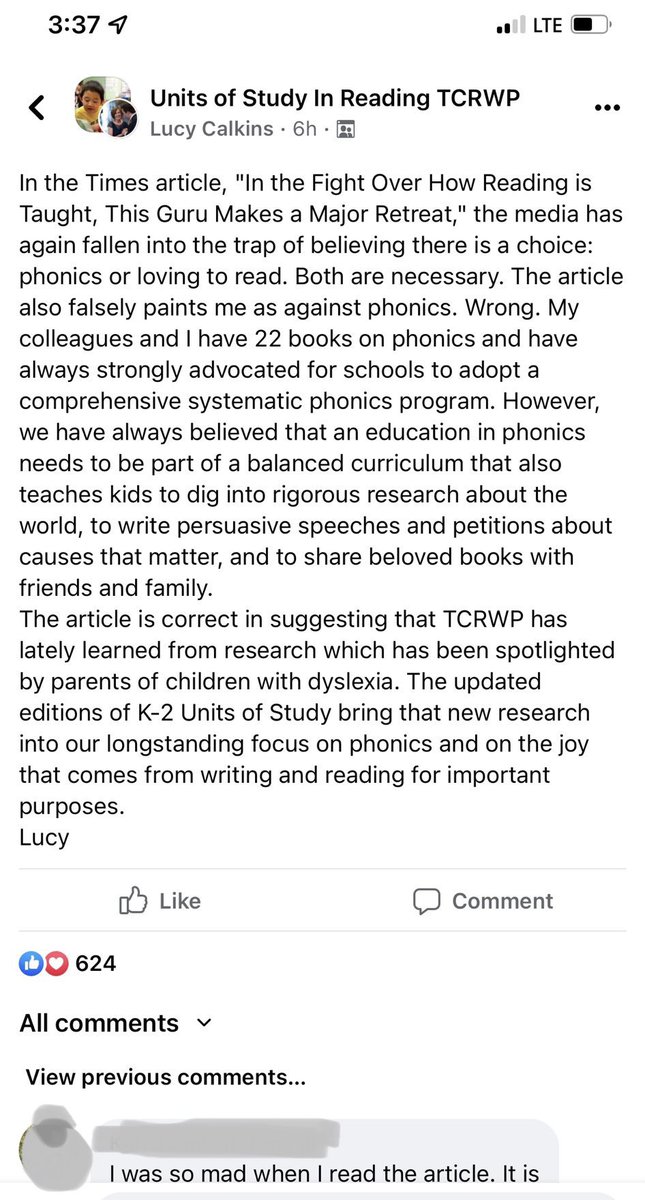
The most important repost of @DanaGoldstein’s piece that you’ll see.
It’s from @TNedu Commissioner. She has led the effort to get high-quality ELA curriculum in nearly every districts, and her schools are reaping the benefit.
“I appreciate the changes, but go all the way.”
It’s from @TNedu Commissioner. She has led the effort to get high-quality ELA curriculum in nearly every districts, and her schools are reaping the benefit.
“I appreciate the changes, but go all the way.”
https://twitter.com/schwinnteach/status/1528736076499648512
Folks, we have a tie.
From the head of @NCTQ, and until recently, a leader in @MASchoolsK12:
💯
From the head of @NCTQ, and until recently, a leader in @MASchoolsK12:
💯
https://twitter.com/HeatherPeske/status/1528744025494274048
I’m here for these calls for curriculum improvement from state leaders, especially the ones who have taken clear, strong action to get their districts to stop using Balanced Literacy curricula and start using high-quality curriculum.
True of @SchwinnTeach and @HeatherPeske.
True of @SchwinnTeach and @HeatherPeske.
Tennessee leads the nation in high-quality curriculum use. More here: forbes.com/sites/nataliew…
MA has tight #MassLiteracy & #CurriculumMattersMA initiatives, and the grant program below is a smart curriculum change incentive. Other states should copy.
Cc: @TonyThurmond
MA has tight #MassLiteracy & #CurriculumMattersMA initiatives, and the grant program below is a smart curriculum change incentive. Other states should copy.
Cc: @TonyThurmond
https://twitter.com/karenvaites/status/1492519662634082307
Now we have a call from the acclaimed former state superintendent of Louisiana, seeking more focus on change agency by states etc.
Considering that the work in TN and MA (described above) has had essentially no media attention, I concur!
@DanaGoldstein @alexanderrusso
Considering that the work in TN and MA (described above) has had essentially no media attention, I concur!
@DanaGoldstein @alexanderrusso
https://twitter.com/SupeJohnWhite/status/1528737805563842563
More from White:
https://twitter.com/SupeJohnWhite/status/1528736043591249923
• • •
Missing some Tweet in this thread? You can try to
force a refresh









